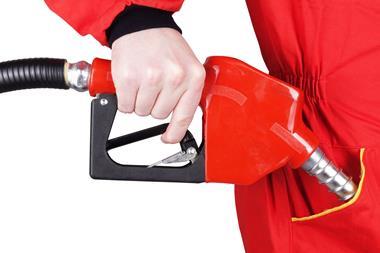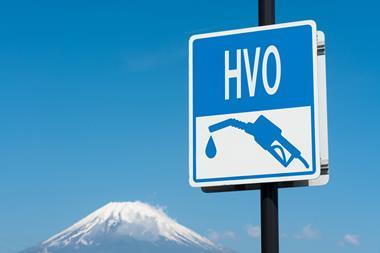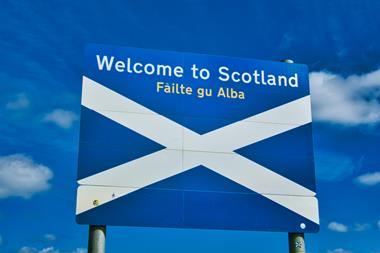Widespread economic uncertainty coupled with soaring oil prices has seen fuel consumption decline since 2008, leading international oil companies to review their service station portfolios across Europe and exit unprofitable sites, according to new analysis by CBRE, a property company which advises some of the world’s biggest oil companies on their real estate portfolios.
CBRE’s new Petroleum Retail Sector report highlights that over the past decade oil companies have been going through a period of transformation both in their company structure and business priorities, which has resulted in a great amount of property changing hands, both upstream and downstream.
Since 2007, 4,573 service stations (downstream assets) closed across Europe with household names including ExxonMobil, BP and Total optimising their portfolios across the continent. These companies followed Chevron and ConocoPhillips which sold their downstream retail networks to independent petrol retailers.
In January 2012, OMV appointed Deutsche Bank to handle the structuring and implementation of its programme of refinery and service station divestments. The company has already announced a number of sales in Eastern Europe as it moves the portfolio away from refining and petrol retailing (downstream) towards exploration and production (upstream).
Petrol retail portfolio consolidation is a trend that is evident across the globe, according to the report’s author Simon Galway, CBRE’s executive director, Global Corporate Services.
"In 2009 Shell and Chevron announced they were reviewing their fuel business and downstream activities in Africa. The same year Chevron announced and commenced the divestment of their downstream petrol retail assets in eight African countries. In 2011 Shell also announced the sale of their downstream retail portfolios in 21 of the 24 African countries in which they had marketing assets."
In Asia Pacific as recently as September 2012, Petronas Malaysia’s national petroleum firm announced it was selling all its 100 service stations in Thailand to Susco PLC an international petrol retailer with 144 service stations.
"The initiatives of oil companies to rationalise their portfolios have presented opportunities for independent petrol retailing companies, as well as supermarkets, to increase their site numbers," said Galway. "Currently 56% of all petrol stations across Europe have a retail provision.
"The current economic conditions have led to corporates across all sectors to examine their real estate portfolios and seek ways to control costs. In the petroleum sector, we envisage that international oil companies will continue to optimise their downstream real estate portfolios as they separate their retail and production activities. This will create opportunities for national oil companies who seek to acquire downstream assets such as refineries and petrol filling stations.
"As international oil companies look to the east, the national oil companies look to the west."
Galway said there was a growing emphasis on the part of independent petrol retailers to increase profitability of sites they acquire by improving their convenience retail offer.
"Increasing the size of the shop or providing a branded retail offer is one way of achieving this in mature service station markets. Independent petrol retailers and grocers have proven to be the most successful in developing a profitable convenience store offer.
"Another trend to increase profitability and reduce operating costs is moving to an unmanned service station model. Since 2008, unmanned sites have increased across Europe by 447. At the beginning of 2011 there were 10,234, representing 7.7% of the market."
The UK is one of the countries most affected by the continued consolidation throughout Europe in the past year, according to Datamonitor’s 2012 Service Station Retailing database, with 805 closures, alongside Italy (1,250) and France (1,200).
The storm clouds are gathering
UKPIA, the trade association representing the main oil refining companies in the UK, has published a new report entitled ’A Perfect Storm’, which highlights the combination of conditions that threaten the future of the UK oil refining industry. The main points are:
l UK refining faces a threat to its survival through a combination of factors: low margins on refining of crude oil; cost impacts of meeting EU and UK legislation creating an un-level playing field in comparison with competing non-EU refineries and supply sources; an increasing misalignment between refinery output and product demand; and demand destruction partly due to legislative impacts to reduce carbon emissions.
l With two refineries having closed between 2009 and 2012, the loss of further UK refining capability poses a serious risk to energy security of supply and resilience and could also jeopardise other industrial sectors dependent upon refining feedstocks. It could make the UK highly import-dependent for fuels such as diesel and aviation kerosene, and represents a substantial loss to the economy nationally/regionally of income, employment and skills generated by refineries.
l Meeting global future energy needs will be a major challenge but oil is not running out and will continue to be dominant in meeting future transport energy needs. The International Energy Agency’s New Policies Scenario in the World Economic Outlook 2010 envisages that in 2035, even with a range of measures to improve efficiency and reduce carbon emissions, oil will still be meeting close to 80% of the EU’s transport requirements.
l Legislative changes associated with carbon reduction and air quality, such as EU ETS Phase III and the Industrial Emissions Directive (IED), will add to these pressures with the risk that UK and EU refineries are competitively disadvantaged versus overseas refineries that do not have to meet the same standards. In addition, UK-only legislation such as the CRC Energy Efficiency Scheme and reform of Climate Change Levy (CCL) legislation to introduce Carbon Floor Pricing, will add substantially to the industry’s costs.
UKIPA director general Chris Hunt said: "The refining sector works on a very narrow differential between cost of crude oil and value of products produced typically in favourable conditions equivalent to only 1.65ppl. After energy and other operating costs this reduces to 0.6ppl (Source: Wood Mackenzie/UKPIA). We calculate that new legislative impacts could add a further 0.35ppl of costs, leaving close to zero return on capital employed which is unsustainable."

































No comments yet